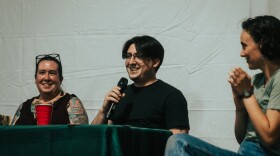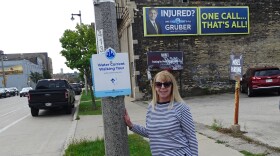Tonight’s debate between Democratic contenders may well include a conversation about the upturn in global terror, especially as carried out by ISIS. The recent attacks in Paris and on a social service center in San Bernadino, California has thrust the issue of America’s response to terror attacks by religious extremists back into the forefront.
Among the Republican presidential hopefuls, some have called for strict controls on Muslim travel and immigration to this country. On the other side, President Obama visited a mosque recently to talk about the importance of Muslims to this country, and the need for better communication between people of different faiths.
Fatih Harpci is a native of Turkey as well as an assistant professor of religion at Carthage College. He recently wrote an op-ed in the Milwaukee Journal Sentinel focused on Fethullah Gülen, a Turkish-Muslim "teacher, preacher, thinker, dialogue and peace promoter."
In the op-ed, Harpci hails Gülen's calls for the world's Muslims to be voices for peace and to speak out against the "cancer" that is religious extremism. There are Muslim leaders like Gülen, Harpci says, who are speaking out against ISIS, writing letters and confirming that their behavior is "not only non-Muslim, but anti-Muslim."
In the US, Harpci notes that whether an attack involves a Muslim colors how the attack is described in the media and among the public. He gives the example of the recent standoff by non-Muslims in Oregon. "So look at the terms we are using: 'armed militia,' 'white supremacist,' 'psychopath,' 'shooting,' 'mass shooting,' 'hate crime,' but not 'terrorist,'" Harpci says. "We are saving that word for Muslims."
Harpci says that this characterization reflects a problem that non-Muslims see Muslims as the "other."
The biggest mistake that non-Muslims make in the West, says Harpci, is "painting the whole [Islamic] faith with a single brush." Instead, per Harpci, a follower's connection to Islam, "is up to the person, its up to the individual, depending on their world view, their political understanding, their economic status."
Harpci says the first step to bridge this gap in understanding is to "just get together. Make your invitations. Say lets get together have a coffee...and just get to know one another."






